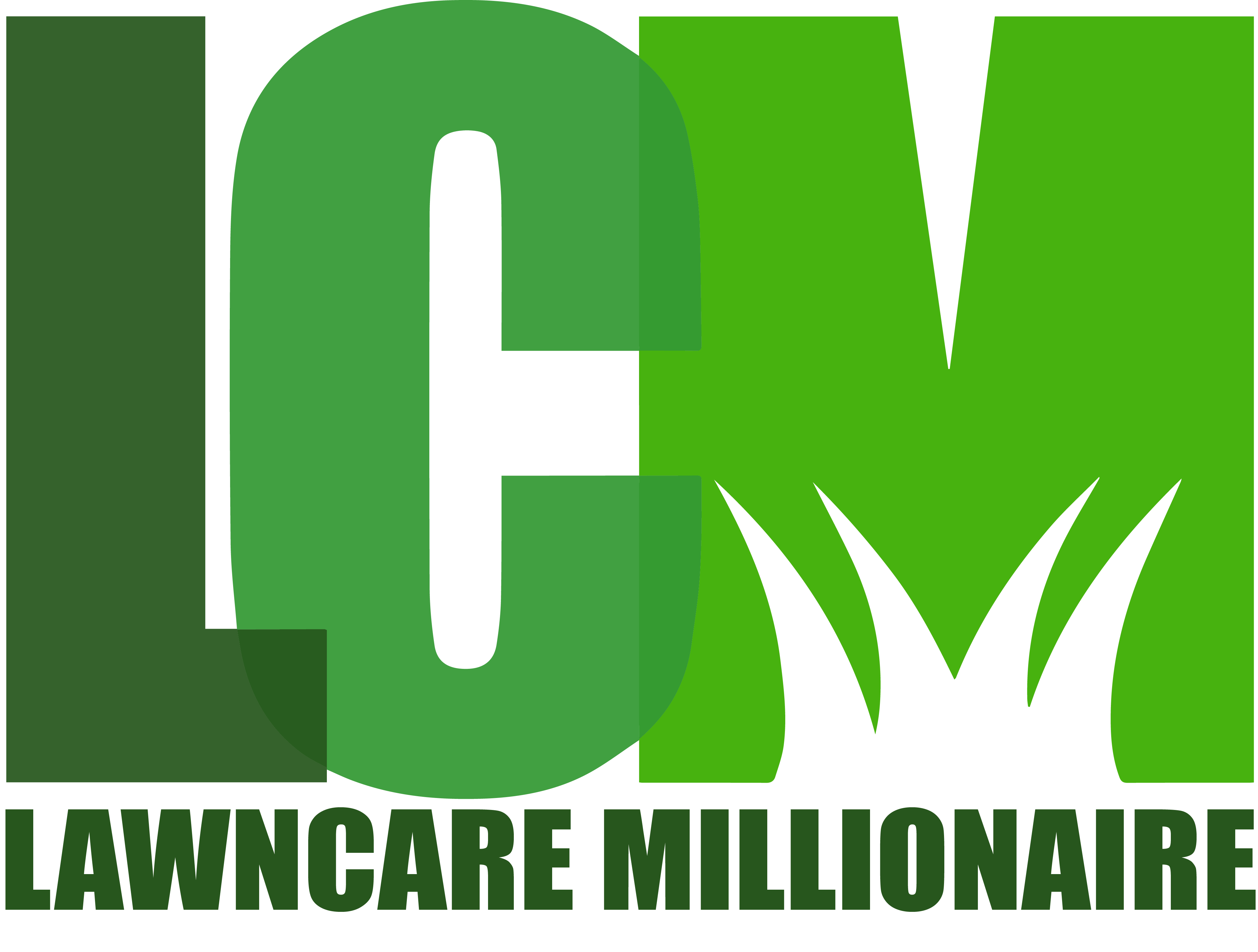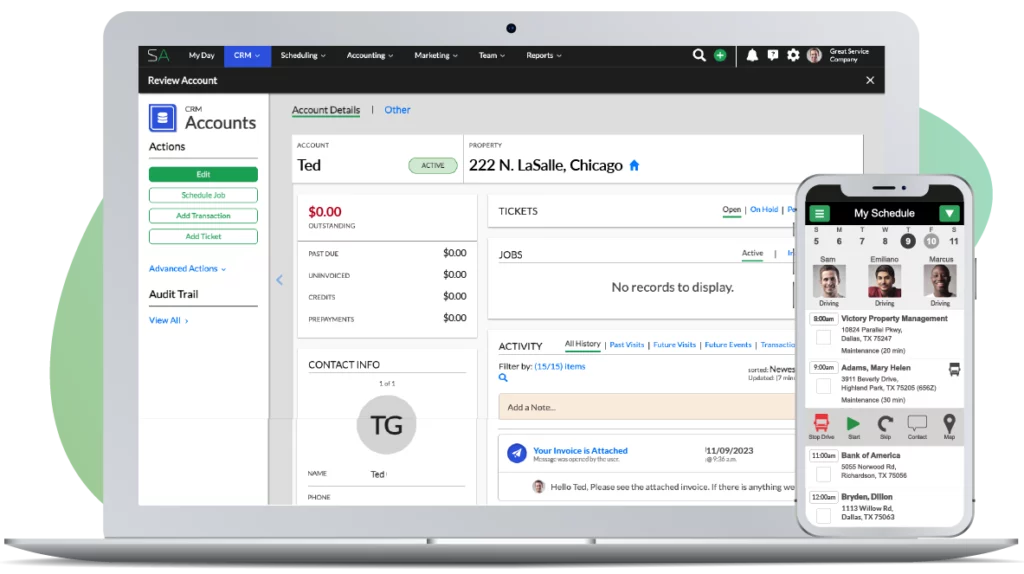When purchasing landscape equipment for your lawn care business what are the top considerations on your checklist?
1) Most business owners put price as a top consideration. Money matters, but learn what your top money consideration should be.
Hint: resell value plays a part in the cost of your lawn care equipment
2) If you have two nearly identical pieces of equipment but one is considerably cheaper… learn how to choose between the two.
Hint: you are in the business of selling time
3) Many lawn care companies buy too much equipment or spend too much money on landscape equipment before they really need it. This consideration will allow you to buy less equipment.
Hint: renting equipment isn’t the solution… when you need a piece of equipment fixed or repaired during peak season what matters most?
Video Transcript
Hey, it’s Jonathan.
The question is what should I consider when buying equipment, so I’m going to give you the top three considerations that I think about when buying a piece of equipment. They are not necessarily in order, production speed and I’ll go through each and explain, your cost of ownership and the speed at which you can get replacement parts or that you can get the equipment fixed and back into production, back into service. Notice, I did not mention the cost of the equipment or the initial purchase price or if that piece of equipment is cheaper than a competitive piece of equipment. That’s really a non-issue and so let’s talk through a couple of these things and let’s start with the production speed.
Production speed to me is probably the top one, it’s definitely the consideration here because in if I’m comparing two pieces of equipment, let’s use something that’s a little bit expensive. Let’s say I’m comparing a $6000 piece of equipment to an $8000 piece of equipment. At first glance, yeah 2000 bucks, I’d like to save that. I don’t want to spend $2000 if I don’t have to, so I’d rather buy the $6000 piece of equipment. However, at the end of the day, I’ve got a guy running that piece of equipment that’s probably making between $10 and $18 an hour, totally depends on who they are and what they’re doing in the business.
Now, let’s just say that they make $14 an hour, every hour that they move slower because we went with inferior piece of equipment, costs me money, every hour that that piece of equipment is down, every hour or every moment, every minute that it takes to load that piece of equipment or maintain that piece of equipment or lower the height of it if it’s a mower or whatever the case may be, every minute of convenience on that piece of equipment is costing me as a company money. Production is what matters.
Again, if the equipment’s $2000 dollars more but with that piece of equipment, I can move just a little bit faster, I can change the height again using a mower example just a little bit faster, I can get it on or off the truck a little bit quicker, I can change the blades when I’m sharpening them every day or every week I can do that little faster, the air filters are a little easier to maintain. You can think of a whole list of 50 different factors that go into that piece of equipment. Take another one, the majority of the employees that I might hire are trained to use that piece of equipment already.
They’re more comfortable with it, so they move faster or the piece of equipment’s a little lighter or a little easier to maneuver, therefore after a 10 hour workday, they wear out a little bit slower as an employee. Therefore, they continue to move just as quick, really consider that one. Does this piece of equipment wear them out, does it beat them up because that affects how fast they’re still working come the end of the day, especially come the end to the week on Friday. All of that matters that’s production speed that is in my opinion the most important factor.
Now the next factor will be this cost of ownership, so it really doesn’t matter what I buy the equipment at. What really matters is eventually when I sell that piece of equipment, the spread. If I buy a $10000 piece of equipment that I could later sell that equipment, let’s say after four years for 5000 then with no additional cost going into this piece of equipment, maintenance or repair, then that I have got a $5000 cost of ownership on that piece of equipment. I bought it for 10, I sold it for 5 four years later, cost me $5000 to run it for four years, roughly 1250 a year. $1250 a year is my cost of ownership. Now you got to put into that repairs and maintenance and all the other things that really go in ownership, but that’s something, consider it just like when you buy a truck.
If you’re buying a Ford F150 and you’re debating between that and a Toyota Tundra, you’re probably considering, okay this Toyota Tundra tends to have better resale value, so should I buy a Tundra? It’s going to cost me more money up front, but later when I sell it, I am going to get more back and that’s just an example, but you do typically when you buy a vehicle, a truck, a car or personal vehicle, you think about that kind of stuff. What might this thing be worth down the road? The exact same scenario is true with this piece of equipment, what’s my ownership cost going to be?
That’s a factor, so for example in small equipment’s a pretty big deal because we sell off our equipment every year, so we want to be able to buy it, keep it really well maintained and then sell all of it at the end of the year and just buy new equipment. We want to have a good resale value on that piece of equipment, we want that equipment to be desirable. Cost of ownership is a factor. I actually, as I’m talking here, I almost made it my third factor, production is one, my second factor is the speed at which I can get parts for this equipment. Now on a cheaper piece of equipment, this is less important, so as an example, it’s not as important that I can get a replacement head for a weed eater in 30 minutes.
The reason I say that is let’s say the weed eater costs 300 bucks, I could have an extra one on hand, I could just buy an extra weed eater. If one goes down, we’re not going [inaudible 00:05:23] weed eater head, we’re just going to pull out another weed eater and get the job done. We’ll get another head for that weed eater down the road, another day. We’re not going to send a crew to go get that head today. That’s stupid, we have an extra piece of equipment on the truck because it’s inexpensive, it’s hardly any money when you think about the broad scheme of things and the cost of payroll. Now, if you’re talking about a $10000 piece of equipment, well I don’t have a bunch of those just sitting around as a backup. That would be stupid.
If that $10000 piece of equipment breaks down, now if I’m a big company and I depend on a bunch of these $10,000 pieces of equipment, I do have backups. But if it’s a piece of equipment that I don’t fully utilize it all the time, I’m not just going to have another one sitting there all the time. I need to know that this piece of equipment that I just bought is common in my marketplace that I can at any moment go to my parts supplier or to the vendor that we bought it from and immediately get parts or quickly get it repaired. I need something that’s popular in my market, something that’s common, something that I can easily get fixed. I cannot afford for this piece of equipment to be sitting in their yard five days, while I am waiting for to be repaired. This is a huge factor.
As you’re thinking about you purchase, think about how fast can we perform with this equipment and it’s way more than just production speed in the field, think about all the different things that go into utilizing a piece of equipment, think about your cost of ownership, what’s it going to cost me to buy it, how much might I sell it for in four years or five years, how much do I think it might cost to maintain this overtime, how much do I think it might cost to put new parts on this thing over time that’s your cost of ownership. You might compare that to the other piece of equipment that you’re considering and then finally how fast can I get parts for this. I mean you need them pretty much immediately and then if I have to have somebody else repaired, how quickly can I get it back?
I realize that there could be unique scenarios where on a piece of equipment it is some obscure part that hardly ever breaks and they don’t have it in stock, but 80% of the time when this thing’s going to break, can I get the parts that I would need, 80% of the time, when it’s going to break, could I get it repaired immediately? Take that into account.




One Reply to “Top 3 Tips For Purchasing Landscape Equipment”
Thank you for the help, Jonathan. I am going to try and landscape my yard more this spring, but it will be my first time and I need the equipment. I definitely do not want to focus entirely on price, as you mentioned. But, how can someone with little experience, such as myself, determine if something is truly quality?